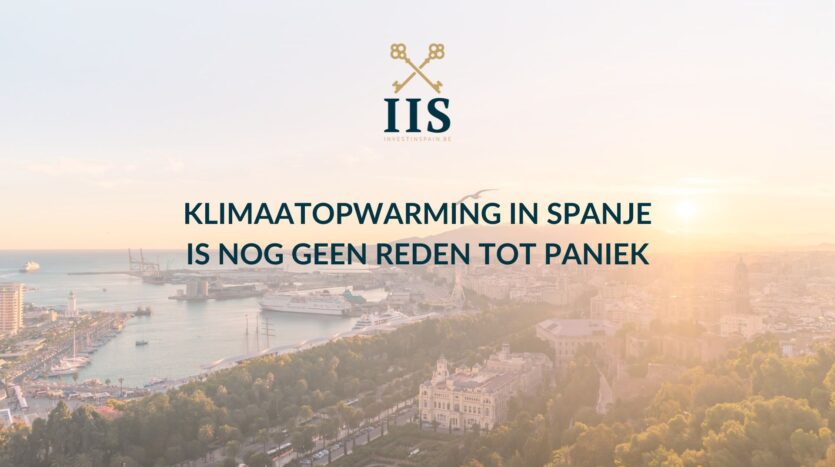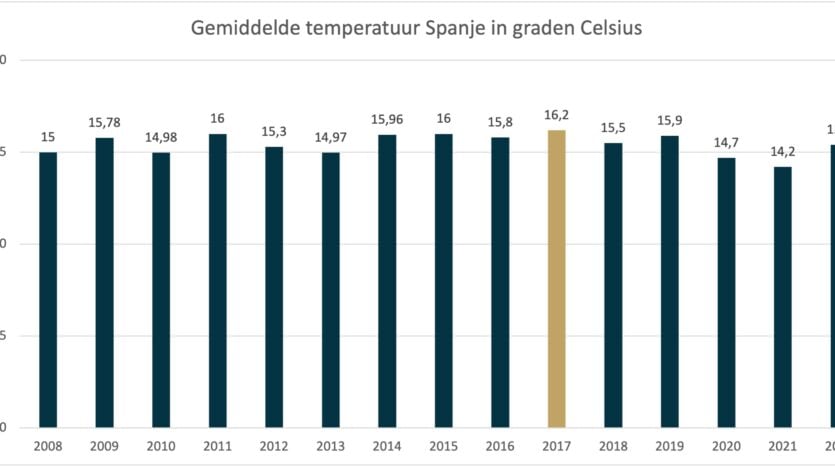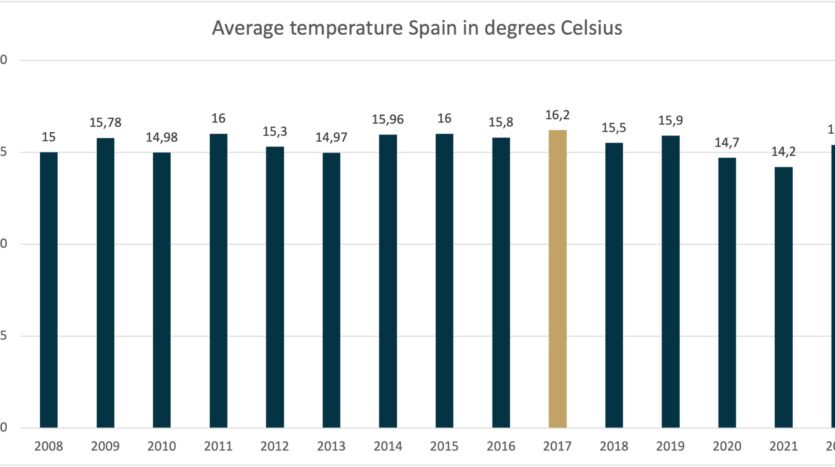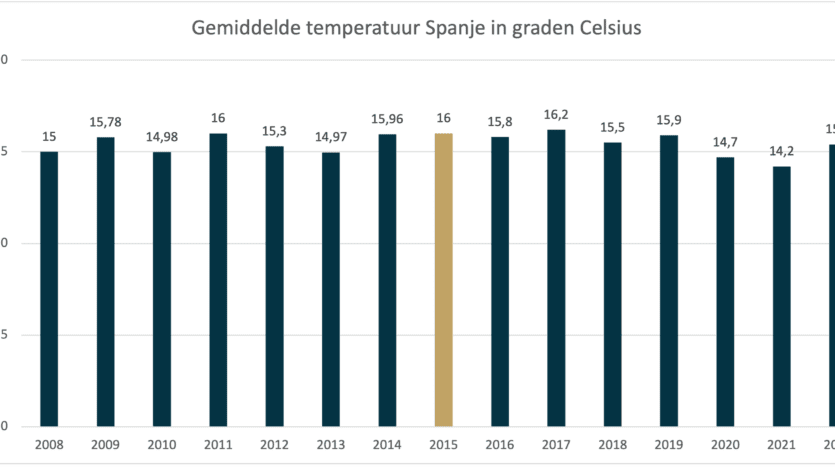Climate warming in Spain is no reason to panic yet
Global warming is Spain is literally a hot topic: News came out recently that Spain has reached a historic record seawater temperature. While global temperatures are indeed rising, there is no immediate need to panic for people living or wanting to live in Spain. Moreover, the country is also doing all it can, along with the rest of the EU, to combat global warming.
In mid-July 2023, the average temperature of Spanish seawater was 24.6 degrees Celsius. Previous records were 24 degrees in 2015 and 23.7 degrees in 2017, according to national weather service Aemet. Although this latest record was a lot higher than the previous one, panic is still out of place. The average temperature measured on land gives a slightly more nuanced picture. For example, the average temperature in Spain in 2008 (Aemet’s first measurements) was 15 degrees Celsius. Fourteen years later in 2022, the average temperature was 15.4 degrees and in 2020 and 2021 only 14.7 and 14.2 degrees respectively:
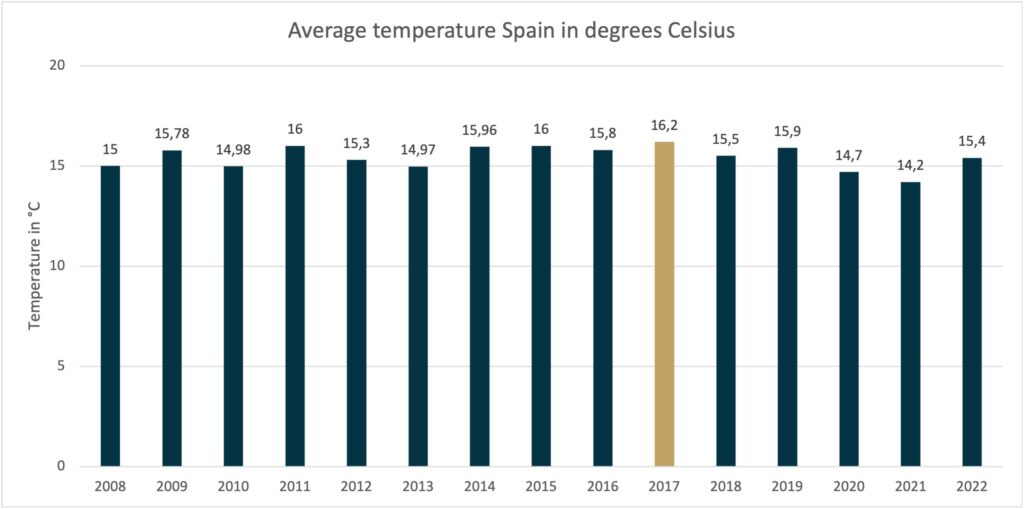
Measures to combat global warming in Spain
So it is certainly not the case that temperatures in Spain would become unbearable overnight, but in the long term, it is interesting to do everything we can now to combat global warming. Spain is therefore committing to specific measures along with the rest of the EU. We list some of them here:
Climate-neutrality by 2050
Spain wants to be climate-neutral by 2050. This does not mean that the country will no longer emit CO2 by then, but rather that the CO2 the country can absorb (through, for example, the number of km2 of forests) is at least equal to the CO2 emitted.
74% of energy to be renewable by 2030 and 100% by 2050
By 2030, 74% of energy generated should come from renewable sources such as wind, hydro, solar, … By 2050, all energy should come from renewable sources.
Ban on internal combustion engines by 2040 to combat global warming in Spain
By 2040, combustion engines would be banned. These are engines that run on fossil fuels such as petrol and diesel. From then on, only electric cars or alternatives such as hydrogen-powered cars would be allowed to drive around the country.
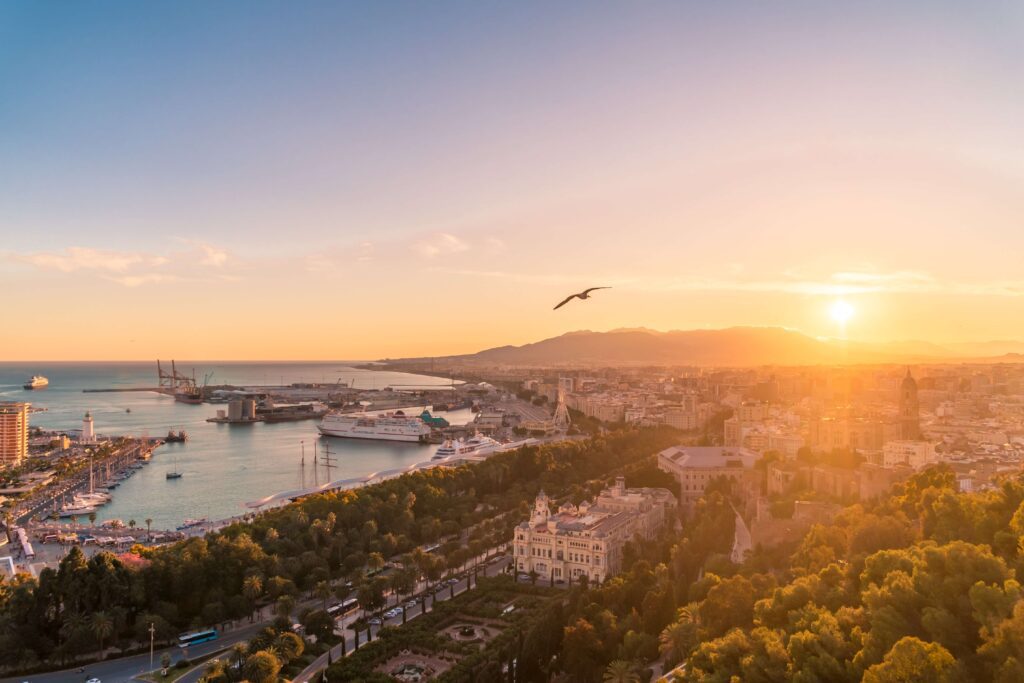
Ending fossil fuel production on Spanish territory by the end of 2041
By 31 December 2041, just under two years after the internal combustion engine ban, no fossil fuels would be allowed to be produced in Spain.
Low emission zones in large municipalities and cities
All municipalities and cities with more than 50,000 inhabitants will have low-emission zones by 2023, as well as municipalities with more than 20,000 inhabitants that have poor air quality.
Concrete plans to curb greenhouse gas emissions for companies
Bedrijven moeten concrete actieplannen hebben om broeikasgassen tegen te gaan.
Water shortage due to global warming in Spain
Hot temperatures in Spain are not the biggest problem caused by global warming. The pressure that long periods of drought put on water resources is particularly problematic.
Water shortages
Spain is prone to water shortages, especially after long periods of drought, which puts enormous pressure on agriculture. Tourism also contributes to this problem: the average tourist uses more than 5 times more water than a Spaniard. The solution to this is reusing water from municipal sewage treatment plants, mainly in the agricultural sector. This solution is also by far the cheapest. Since 2021, Spain has been reusing almost half its water.
In short, Spain’s already warmer climate and risk of water shortages makes it susceptible to climate warming. However, the country already demonstrated that it (along with the rest of the EU) is more than capable of combating global warming and using its water resources as efficiently as possible. If everyone does their bit, the country can remain everyone’s favourite travel destination and hometown.
Discover our other blogs:


